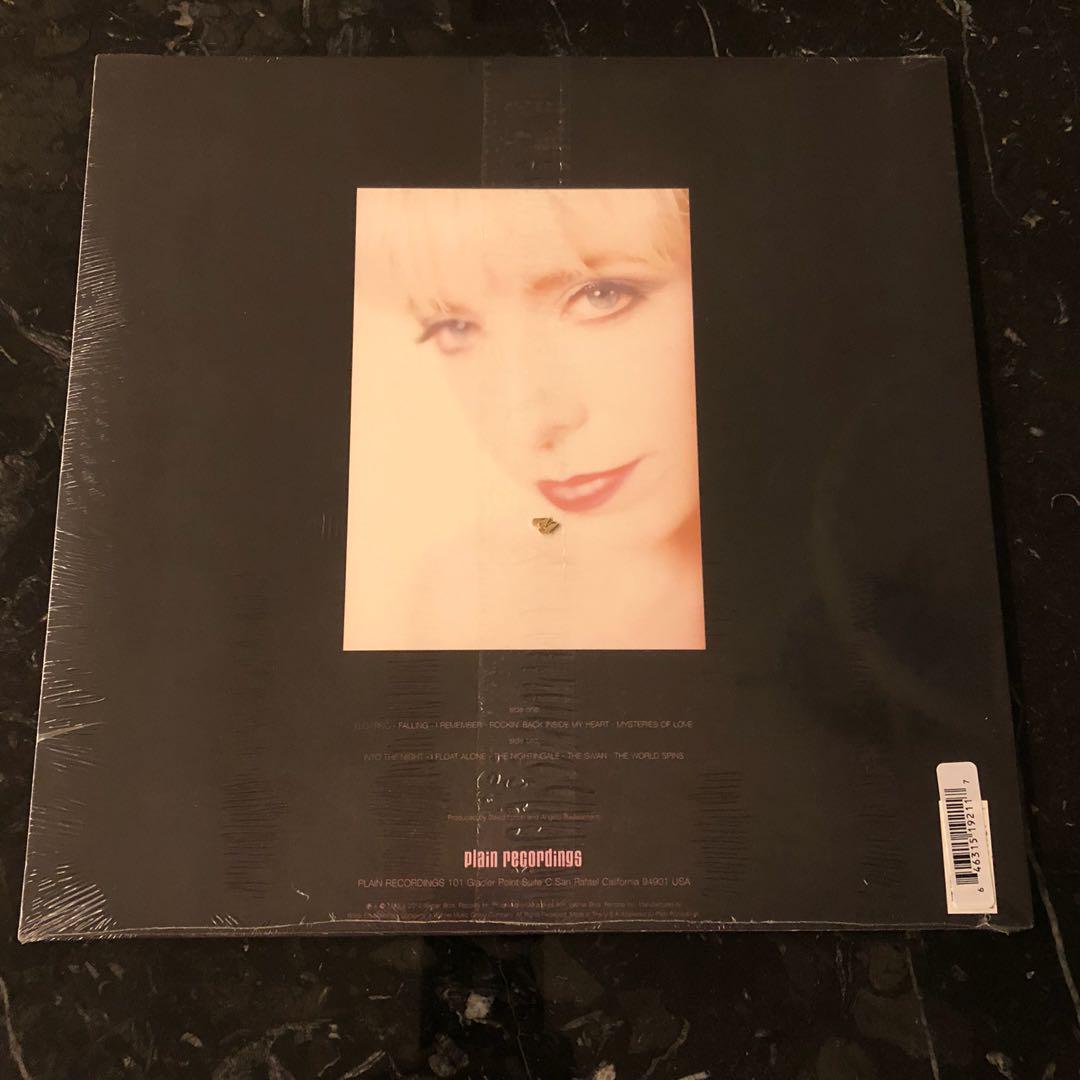Table Of Content
- Kirsten Dunst Confronts ‘Civil War' Hysteria, Hollywood Pay Gaps and the Media Dividing America: ‘Everything Is Broken’
- Supertramp’s ‘Crime of the Century’ with Ken Scott with sound by…
- Gilles Peterson’s Top Five Sun Ra Albums Of All Time
- A Literally Unexpected Twist on Comedy Podcasts: Long Time No See

Classic Album Sundays tells the stories behind the albums that have shaped our culture and in some cases, our lives.
Kirsten Dunst Confronts ‘Civil War' Hysteria, Hollywood Pay Gaps and the Media Dividing America: ‘Everything Is Broken’
Rock ’n roll had broken into mainstream media, and, with it, the romantic notions of teenage lust, love and rebellion that would come to define youth culture in the 20th century. “Into the Night,” “The Nightingale” and “The World Spins” also appeared in the series, in some cases in both lyrical and instrumental versions; they’re part of the fabric of its world, so to get to listen and revisit them separately deepens the nostalgia they elicit. They also showcase Badalamenti’s unique, sometimes odd-seeming personnel combinations, utilizing live drums to perform jazz rhythms, electric guitar and then synthesizers for everything from atmospherics to filters (or even replacements) for live instruments (the saxophone on “Rockin’ Back Inside My heart,” for example). Records, and features compositions and production by Angelo Badalamenti and film director David Lynch. Songs from the album were featured in Lynch's projects Blue Velvet (1986), Industrial Symphony No. 1 (1990), and Twin Peaks (1990–1991).

Supertramp’s ‘Crime of the Century’ with Ken Scott with sound by…
Together, they’re a reminder of the desperate yearning — for love, and for hope — that is an underpinning of Lynch’s work, making the darkness bearable. Alongside the instrumental work of Angelo Badalamenti, her voice has been a cornerstone of the filmmaker’s soundscape since lending its ethereal tone to ‘Mysteries of Love’ – a song written to replace This Mortal Coil’s ‘Song to the Siren’ in Lynch’s 1986 suburban nightmare, Blue Velvet. Taking a prominent place in the film’s final scenes, the dreamy composition earned a cult following and struck on a near-perfect symbiosis of image and sound. But by the time listeners get to the album’s final track, “The World Spins,” Cruise has long since transported them beyond the imagination of Lynch and the mood-setting of Badalamenti. For better or worse, “Floating Into the Night” will always be tethered to the audiovisual work of her collaborators and indebted to those partnerships.
Gilles Peterson’s Top Five Sun Ra Albums Of All Time
That this dream pop feels effervescent without seeming frivolous exemplifies all three of their talents — Lynch’s as a writer, Badalamenti’s as a musician and hers as a vocalist. Floating Into The Night’s most popular song, ‘Falling’, would be the gateway to Lynch’s next major project. Badalamenti had created the melodramatic musical sequence that would become the Twin Peaks title theme in response to the directors prompt of a young girl alone in the woods at night.
Popular on Variety
12 Key Music Collections, From Future to the Who - The New York Times
12 Key Music Collections, From Future to the Who.
Posted: Sat, 30 Dec 2023 08:00:00 GMT [source]
It is the sound of a burgeoning crush accompanied by the quickening realization of their power to hurt you; it is your hometown at night, with a familiar stillness so quiet it can keep you awake; it is the voice on the other line, distant and mysterious, but close enough so you can hear every breath. Iowa-born Cruise had met Italian-American composer Badalamenti in a Broadway theatre workshop, both being veterans of performance and having helped stage a Janis Joplin revue together. Badalamenti had previously soundtracked films such as Gordon’s War and Law And Disorder in the 1970s and received little acclaim, but in 1986 an opportunity arose when he was hired by Lynch as a vocal coach to Blue Velvet’s seductive star Isabella Rossellini. Throughout production Cruise’s talent became an essential part of the director and composer’s nascent mythology that would later reach its zenith on the cult TV series, Twin Peaks.

Meanwhile, the phantasmagoria of Badalamenti’s music takes the listener into the heart of the Overlook ballroom, evoking a sense of faded revelry that would later become a hallmark of his lounge jazz compositions such as ‘Audrey’s Dance’ and ‘Dance of the Dream Man’. The overall effect is arresting, tapping into a nostalgia for a time that, for many of us, is completely unknowable. The album peaked at number 74 on the US Billboard 200 following the success of the Twin Peaks TV series in 1990. Lead single "Falling" reached the top 10 of the UK Singles Chart, peaking at number seven and spending 12 weeks in total on the chart. Despite the Korean war, the Suez crisis, and the Cuban revolution, the 1950s is often remembered as America’s age of innocence. Thanks to a growing middle class and a consumerist boom many citizens of the United States felt a sense of security in their socially conservative society, threatened only by the steady eastern breeze of communism.
The “Twin Peaks” theme “Falling” appears as the second track on the record, and her voice (absent from the broadcast version) sounds as much like Lynch’s fallen heroine Laura Palmer as the spirit of the mythical, virtuous White Lodge hidden in the eponymous Northwestern town’s arboreal enclave. Although the instrumental version of “Falling” is more famous, her vocal version serves as a vivid reminder of how distinctive her contributions were to Lynch’s work, and integral to the ambience that especially was created on “Twin Peaks.” It’s immediately followed by another song used frequently on the show, “Rockin’ Back Inside My Heart,” but one that wasn’t included on its official soundtrack. The gently swinging track professes exactly the kind of love that was shared by the show’s teenage characters; “I want you, you want me,” Cruise sweetly sings, which is why Lynch literally put it into their mouths during several key sequences.
In its album incarnation (released before the show) Cruise’s voice blends seamlessly with the synthetic bliss of Badalamenti’s composition, embodying the sweet vulnerability of teenage bewilderment. After its Grammy-winning instrumental became an iconic introduction to the show in 1990, the singer’s original became an unexpected global success, charting in fourteen countries worldwide, including Australia, where it peaked at number one in April 1991. Her death after being diagnosed with systemic lupus preceded the December 2022 death of composer Angelo Badalamenti, a third and equally vital member of Cruise’s musical partnership with Lynch. Badalamenti composed the music for “Floating Into the Night” and Lynch the lyrics, creating a singular combination of girl-group doo-wop and gothic romance — the precise juxtaposition explored in Lynch’s work between small-town innocence and the mysterious secrets lurking beneath that wholesome veneer.
Julee Cruise's Floating into the Night Receiving Vinyl Reissue - Consequence
Julee Cruise's Floating into the Night Receiving Vinyl Reissue.
Posted: Thu, 06 Jul 2023 07:00:00 GMT [source]
Other Albums by Julee Cruise
Although often contemporary in their setting, the films of David Lynch bask in the rose-tinted haze of sleepy small-town living. In his alternate universe, time seems to fold in on itself, collapsing the years onto one another until an eerie temporal disorientation is achieved. But it’s not simply innocence that Lynch is interested in – rather the corruption of it, his work pitting clean-cut characters against a world filled with misery and perversion; blurring the lines until morality becomes terrifyingly hard to discern. Cruise’s somnambulant croon is a siren call, obscured by an impenetrable mist that only heightens her ethereality, whilst Lynch’s fatalistic lyrics toy with the well worn cliché of love as a burning, mesmerising flame.
But a little more than a year after her death, this rerelease puts a spotlight on the particular significance of her sometimes under-appreciated contributions to the trio — as a mysterious, gentle and warming voice, putting into words sensations that otherwise transcend language. When Julee Cruise died last year on June 9, David Lynch fans lost another of the essential, even inextricable collaborators who became a part of their lives as a result of being part of his art. Her ethereal singing is synonymous with both “Blue Velvet” and the many incarnations of “Twin Peaks,” the latter of whose title theme she performed. Even with these specific reference points, there is no true precedent for Floating Into the Night, and its greatest asset remains its timelessness. Describing her inspiration, Cruise pinpointed the feeling of paranoia that accompanies any surge of joy or new love. “That voice can be very disturbing and destructive, and that voice is talking all through the album.” If Lynch’s work remains a confounding acquired taste for some, then Floating Into the Night is a record that anyone can at least understand.


